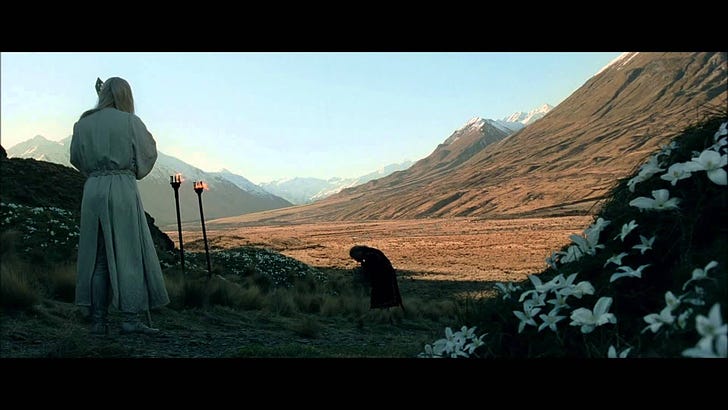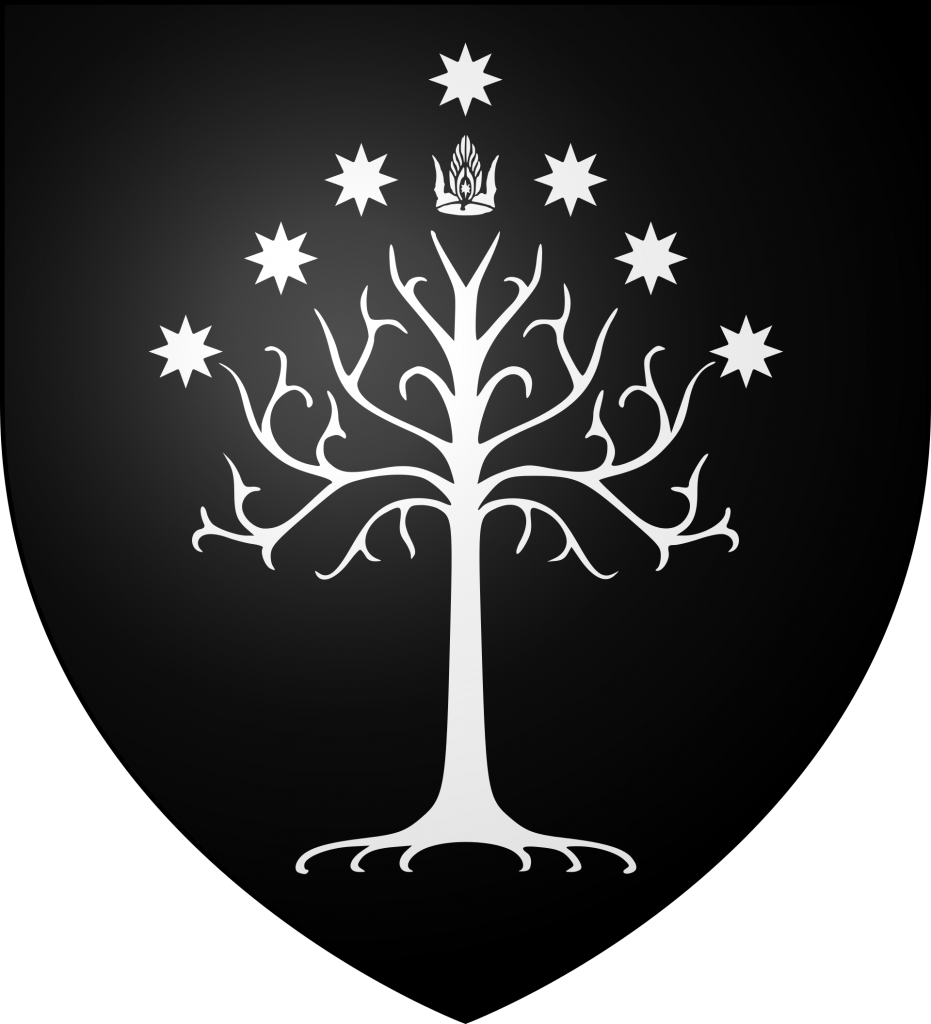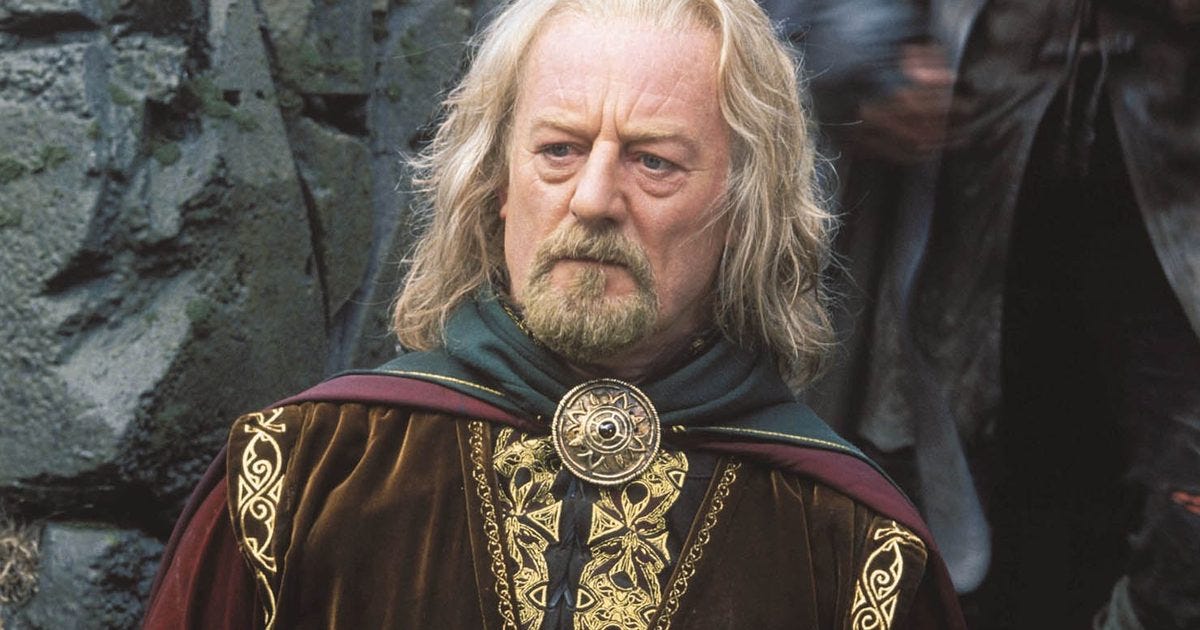Bernard Hill passed away on May 5th, 2024. He had parts in British film and television, and Titanic (1997) but, if you’re a man of my generation or a fantasy nerd of any age, you probably know him as the actor who played King Theoden in The Return of the King (2003). The film truly represents a high-water mark for cinematic fantasy and is probably a career best for Christopher Lee, Ian McKellen, Andy Serkis, and Viggo Mortensen (although Eastern Promises, 2007, must be a close contender).
In the story, Hill plays the King of Rohan. Rohan is a country which plays only a secondary role in the Lord of the Rings trilogy but which was prominent in the affections of Tolkien. Tolkien was apparently much taken with the Finnish Kalevala myths which he encountered during his undergraduate days as a linguistics student. Finnish is an enduring object of fascination for linguists due to its non-Indo-European origins (it is in the Finno-Ugric language family), placing it among a very small number of extent European languages (Basque, perhaps Hungarian) to survive the Indo-European cultural domination of the chalcolithic period.
Tolkien wrote, to an editor:
[O]nce upon a time (my crest has long since fallen) I had a mind to make a body of more or less connected legend, ranging from the large and cosmogonic, to the level of romantic fairy-story – the larger founded on the lesser in contact with the earth, the lesser drawing splendour from the vast backcloths – which I could dedicate simply to: to England; to my country. It should possess the tone and quality that I desired, somewhat cool and clear, be redolent of our ‘air’ (the clime and soil of the North West, meaning Britain and the hither parts of Europe; not Italy or the Aegean, still less the East), and, while possessing (if I could achieve it) the fair elusive beauty that some call Celtic (though it is rarely found in genuine ancient Celtic things), it should be ‘high’, purged of the gross, and fit for the more adult mind of a land long now steeped in poetry.
The Rohirrim in Tolkien’s story are the people of Rohan: a blond, Germanic-type, horse-riding people who spurn cities and citadels for hamlets and farms. They are closest (according to Tolkien himself) to his own Anglo-Saxon ancestors.
In the story, the remnants of the Fellowship (Sam and Frodo have already parted ways near the Falls of Rauros, making their slow way toward Mordor and Orodruin to destroy the One Ring) happen across Rohan at a dark time. The king has been bewitched by a servant of the wizard Saruman, who has fallen to the darkness. The countryside is aflame with orc raids. The king’s son is killed in such a battle shortly after the arrival of the Fellowship, as you can see in this poignant scene:
King Theoden is released from his mental bondage by Gandalf and rallies to the defense of his people. He brings them to Helm’s Deep, a fortified canyon, to try to protect their remaining women and children and protect his people from further death. He is overcome by grief at his personal loss and the diminishment of his tribe… but he remains unbowed.
At the last minute his hundreds of desperate warriors, reduced to a kind of last-ditch stand at their rear fortified redoubt, are assisted by the arrival of the elves (in the films, not the books; it’s still a great and popular alteration by director Peter Jackson):
Other forces intervene to assist at the battle of Helm’s Deep and Saruman’ orcs are badly defeated. Theoden, braced by his victory and grateful of the help, decides to send every one of his warriors to Gondor, answering the call of the Beacons, as Sauron moves his forces toward Osgiliath and then on to Minas Tirith, the last Citadel of the Men of the West.
The White Tree of Numenor, standard of Gondor, last remnant of the great empire of the Faithful, who fled the island after its corruption and total destruction
There’s an excellent moment in the film where the onlookers clearly wonder: will he retire to safety… or satisfy his warrior’s oath of honor, even though it might result in the annihilation of his warriors?
King Theoden leads a mighty charge, which saves the Gondorians (along with Aragorn’s arrival with the Oathbreakers). He is killed by the Lord of the Nazgul, the Witch-King of Angmar, but knows that he has died a hero’s death:
"I go to my fathers… in whose mighty company I shall not now feel ashamed.”
There are a hundred events and subplots and story beats interwoven into this narrative but the theme is simple: a brave leader rallies his courage and answers the call of honor, even though it costs him his life.
Like all great stories the lessons and sentiments here are timeless. They would have been recognizable to Zulu warriors, the defenders of Troy, and the armies of Islam. They are universal and human. It is impossible to understand our place in this world, I believe, without acknowledging and celebrating them.







As a Tolkien lover and fantasy nerd with Finnish background I truly appreciate this post! Nice to meet something which strikes the cord apart from politics.
As I watched the beacon scene I couldn't help but wonder: "How do they arrange resupply for all those mountain outposts?" But the Howard Shore score kind of makes those kinds of questions irrelevant!